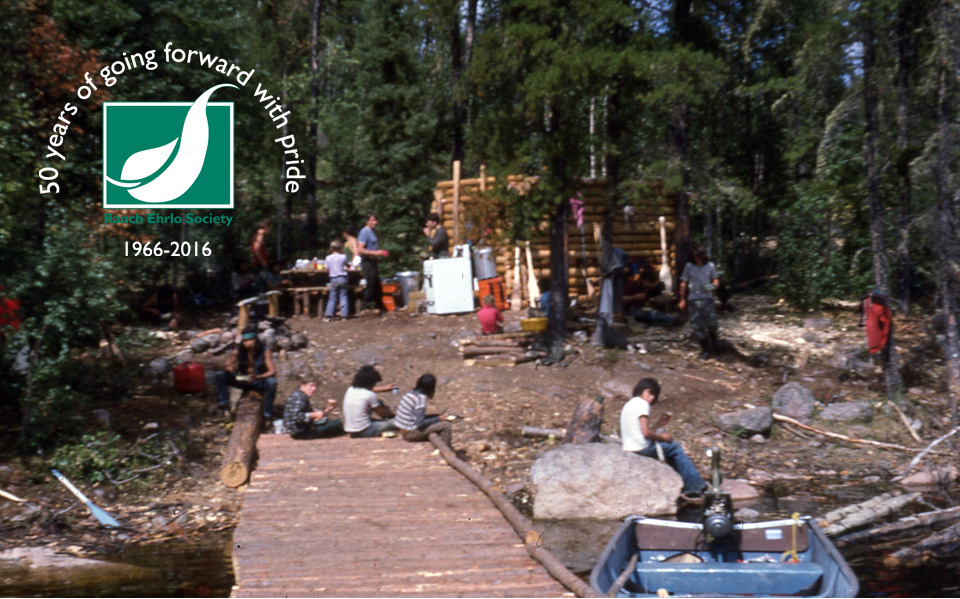Terry Pashe came to Ranch Ehrlo in the early 1970s when it was just a fledgling organization, far smaller in scope than the organization we know today. A residential school survivor originally from a reserve in Manitoba, Terry found himself tangled up in the justice system at a relatively early age.
“I made some bad choices,” he said simply.
His social worker suggested Ranch Ehrlo as an alternative to foster care or a treatment centre close to home, knowing Terry would do better in an out-of-province placement. He agreed, and spent the next three years at the Pilot Butte campus.
Terry was one of the youth who took part in the Wilderness Challenge, established in 1973 as a way to treat seriously disturbed or angry youth, those whom society had deemed all but unreachable. Participants took part in constructing residences, hunting and fishing for food, and sharing tasks required for survival in remote northern Saskatchewan.
Terry recalled horseback riding and canoeing long distances in addition to other survival tasks.
The Wilderness Challenge ended in 1977 amidst allegations of abuse that later proved to be untrue, but the damage was done. Ranch Ehrlo’s reputation was seriously compromised, and it would take years to build it back to where it had been before the accusations. The Wilderness Challenge closed its doors for good.
Today, past participants like Terry recall how the Wilderness Challenge helped them to find independence and to learn the importance of trust and loyalty in their relationships. Looking back, Terry realizes that while at times he saw the Ranch as a rigid environment, ultimately, it helped him find his way to a better way of life.
“The Ranch was a harsh place, but sometimes in life we have to go through hard things,” he said. “It was a place I had to go to learn new ways.”
Ranch Ehrlo was the first treatment centre Terry had attended that promoted First Nations cultures and ideas, something he believes to be of great importance in fully healing from past trauma. He recalled the annual awards night and how being recognized for his accomplishments bolstered his self-esteem and helped him realize he was on the right path.
Today, Terry works as an addictions counsellor for his reserve, Dakota Tipi First Nations in Manitoba.
“Traits like strength and courage, I learned at the Ranch,” he said. “I don’t think it helped me, I know it did.”
We invite you to join us in celebrating success stories like Terry’s at our 50th anniversary celebration, Sept. 29th at the Queensbury Convention Centre in Regina.


